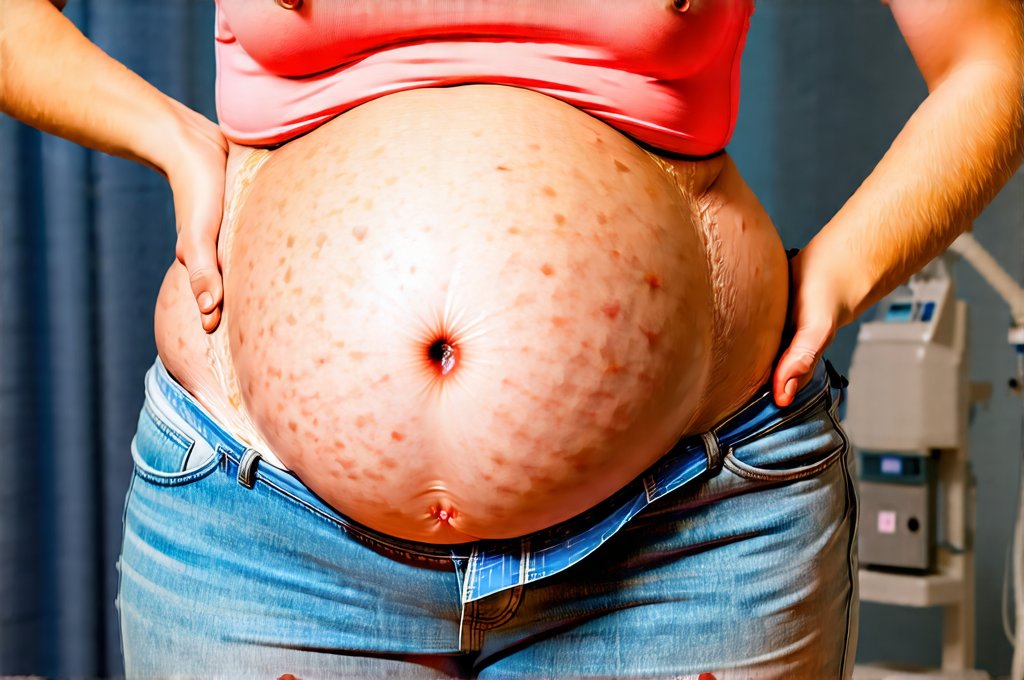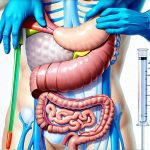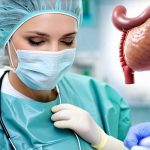Bariatric surgery, encompassing procedures like gastric bypass, sleeve gastrectomy, and adjustable band placement, represents a significant intervention for individuals struggling with severe obesity. While often associated with dramatic weight loss, the impact on digestive processes – and consequently, experiences of bloating and gas – is a complex topic that deserves detailed exploration. Many patients considering or undergoing these surgeries understandably have questions about how their bodies will function afterward, particularly regarding comfort and digestive normalcy. It’s crucial to understand that bariatric surgery fundamentally alters the anatomy and physiology of the gastrointestinal system, leading to both anticipated and sometimes unexpected changes in digestion, absorption, and gut microbiota composition.
The relationship between bariatric surgery and gastrointestinal discomfort isn’t always straightforward; it’s not simply a case of reduced stomach size automatically equating to less gas or bloating. In fact, many patients experience an initial increase in these symptoms post-surgery, which can be disconcerting. This is due to several factors including dietary changes, altered digestive processes, and the body adjusting to its new anatomy. The good news is that with careful management, adherence to postoperative guidelines, and a proactive approach to diet and lifestyle, most patients find significant improvements over time. Understanding the mechanisms behind these changes is key to navigating them successfully and achieving long-term well-being.
Initial Postoperative Changes & Gas Production
The immediate aftermath of bariatric surgery involves substantial physiological shifts. The surgical procedure itself can cause temporary inflammation and disruption to normal gut function, leading to increased gas production. This isn’t necessarily a sign of complications but rather a natural consequence of the body healing and adapting. Furthermore, the prescribed postoperative diet progresses from liquids to purees to soft foods and finally to solid food, each stage requiring the digestive system to adjust. Introducing new foods, even those considered “healthy,” can initially trigger gas and bloating as the gut microbiome attempts to adapt.
Different bariatric procedures impact gas and bloating differently. Gastric bypass, for example, reroutes food past a significant portion of the stomach and small intestine. This alteration can lead to rapid digestion in the remaining digestive tract, potentially causing undigested carbohydrates to reach the colon where bacteria ferment them, producing gas. Sleeve gastrectomy, removing a large portion of the stomach, reduces overall stomach capacity but doesn’t reroute food flow, so the mechanism for gas production differs slightly. Adjustable band procedures can create a functional obstruction, leading to delayed gastric emptying and fermentation in the upper digestive tract.
Ultimately, the initial period post-surgery requires close collaboration with a healthcare team – surgeons, dietitians, and support groups – to manage these symptoms effectively. Dietary adjustments are paramount, focusing on small, frequent meals and thoroughly chewing food. Avoiding carbonated beverages and gas-producing foods (beans, broccoli, cabbage) during this sensitive phase is also crucial. Many patients find that over-the-counter remedies like simethicone can provide temporary relief, but it’s essential to discuss their use with a healthcare provider. Understanding how GERD affects appetite and subsequent dietary needs is also important during this phase.
Long-Term Digestive Adaptations & Bloating Management
As the body heals and adapts over months following bariatric surgery, the experience of bloating and gas often evolves. While some level of digestive discomfort may persist, it generally diminishes significantly compared to the initial postoperative period. This is due to several factors: the gut microbiome begins to stabilize; the stomach pouch or bypassed section adjusts its function; and patients become more adept at adhering to dietary guidelines and incorporating healthy eating habits. However, long-term bloating can still be a concern for some individuals, often linked to specific food intolerances or malabsorption issues.
One common issue is lactose intolerance, which can sometimes emerge or worsen after bariatric surgery. Reduced stomach acid production and altered intestinal transit times can hinder the digestion of lactose, leading to gas, bloating, and diarrhea. Similarly, sensitivities to fructose or gluten may become more noticeable. Identifying these triggers through elimination diets, guided by a registered dietitian, is essential for personalized management. Furthermore, maintaining adequate hydration plays a vital role in preventing constipation, which can exacerbate bloating. It’s also important to consider how overeating affects the valve and its potential impact on digestion.
Proactive strategies are key: prioritizing portion control, avoiding rapid eating, and incorporating regular physical activity all contribute to optimal digestive health post-bariatric surgery. Maintaining a food diary to track symptoms and identify potential triggers is also immensely helpful. If long-term bloating or gas persists despite these efforts, it’s important to consult with a healthcare provider to rule out any underlying complications or nutritional deficiencies. How GERD affects quality of life can also be impacted by continued digestive issues, so seeking help is crucial.
Dietary Strategies for Reducing Gas & Bloating
Diet plays the most significant role in managing post-bariatric surgery digestive symptoms. Implementing specific dietary strategies can dramatically reduce gas and bloating:
- Focus on Protein First: Prioritizing protein intake at each meal helps slow digestion and minimizes carbohydrate fermentation in the colon, reducing gas production.
- Small, Frequent Meals: Eating smaller portions more frequently throughout the day prevents overloading the digestive system and promotes efficient processing of food. Aim for 5-6 small meals rather than three large ones.
- Thorough Chewing: Masticating food thoroughly breaks down carbohydrates into simpler sugars before they reach the colon, lessening bacterial fermentation.
- Limit Gas-Producing Foods: While individual tolerances vary, generally limiting foods like beans, broccoli, cabbage, onions, carbonated beverages, and artificial sweeteners can help minimize gas production.
- Identify & Eliminate Intolerances: Consider an elimination diet under the guidance of a dietitian to identify potential food intolerances (lactose, fructose, gluten) contributing to bloating.
Beyond specific foods, how you eat matters just as much. Avoid gulping down meals or eating while distracted. Taking time to savor each bite and focusing on mindful eating practices can significantly improve digestion. Furthermore, incorporating probiotics into your diet – through fermented foods like yogurt or supplements – may help support a healthy gut microbiome and reduce bloating. GERD and sore gums can sometimes be connected to dietary changes, so understanding your body’s responses is important.
The Role of the Gut Microbiome
The gut microbiome, the community of trillions of bacteria residing in our digestive tract, plays an integral role in post-bariatric surgery digestion and symptom management. Bariatric surgery profoundly alters this microbial ecosystem. Rerouting food (as in gastric bypass) or reducing stomach size impacts the environment where these bacteria thrive, leading to shifts in their composition and function. These changes can contribute to both increased gas production initially and potential long-term digestive issues.
A dysbiotic gut – an imbalance in bacterial populations – is often associated with bloating, gas, and other gastrointestinal symptoms. Restoring a healthy gut microbiome involves dietary strategies focused on prebiotic (fibers that feed beneficial bacteria) and probiotic rich foods. While supplements can be helpful, obtaining these nutrients through whole foods is generally preferred. Fermented foods like yogurt, kefir, sauerkraut, and kimchi are excellent sources of probiotics.
Research suggests that specific strains of probiotics may offer targeted relief from bloating and gas. However, it’s crucial to remember that probiotic supplementation isn’t a one-size-fits-all solution. Consulting with a healthcare professional or registered dietitian can help determine the most appropriate probiotic strain and dosage for your individual needs. Understanding how GERD affects appetite is also beneficial when making dietary changes.
Addressing Persistent Symptoms & When To Seek Help
While many patients experience significant improvements in bloating and gas over time, persistent symptoms warrant further investigation. Do not self-diagnose. If bloating is severe, accompanied by pain, nausea, vomiting, or changes in bowel habits, it’s crucial to consult with your healthcare provider immediately. These could be signs of complications such as a leak, obstruction, or nutritional deficiency.
Several underlying causes can contribute to persistent digestive discomfort post-bariatric surgery:
- Malabsorption: Inadequate absorption of nutrients, particularly vitamins and minerals, can disrupt gut function and lead to bloating.
- Small Intestinal Bacterial Overgrowth (SIBO): An excessive amount of bacteria in the small intestine can cause fermentation and gas production.
- Food Intolerances: Undiagnosed or unmanaged food intolerances continue to be a significant source of bloating and discomfort.
- Gallstones: Rapid weight loss associated with bariatric surgery can increase the risk of gallstone formation, which can lead to abdominal pain and bloating.
Diagnostic testing, such as stool analysis, breath tests for SIBO, or blood tests to assess nutritional status, may be necessary to identify the underlying cause. Treatment options vary depending on the diagnosis but may include dietary modifications, antibiotic therapy (for SIBO), enzyme supplementation, or vitamin injections. Remember that proactive communication with your healthcare team is essential for managing persistent symptoms and ensuring optimal long-term health after bariatric surgery. How GERD affects singing and even your voice can be impacted by digestive issues, so addressing them is vital for overall well-being.


















